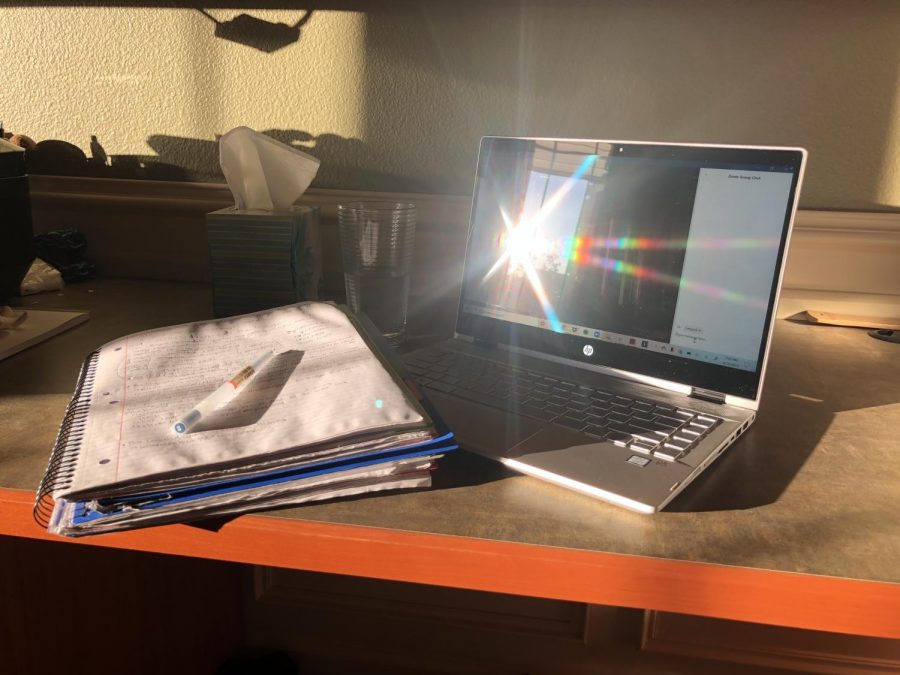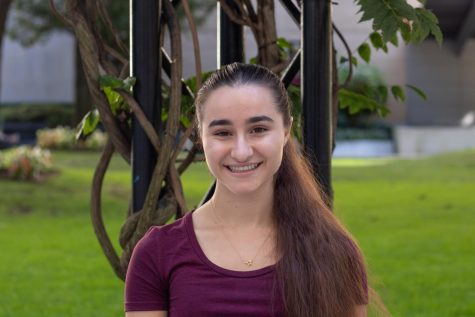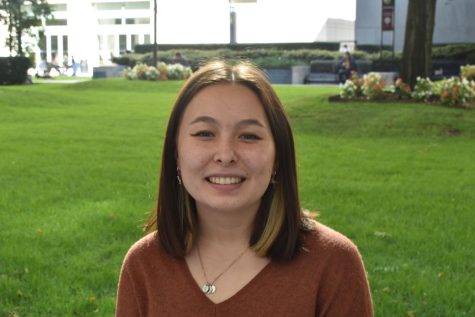Taking Classes Across the Globe
Some students are forced to take classes early in the morning that would be at a normal time at Fordham, had in-person instruction not been canceled.
April 14, 2020
The switch to online classes for the spring 2020 semester as a part of Fordham’s plan to protect against the spread of coronavirus has caused disruptions in many Fordham students’ schedules. For students who are quarantining in different time zones, their ability to participate in online classes or campus activities has been hindered.
At the Lincoln Center campus, undergraduate students come from all parts of the globe, with 377 international students and 891 students from outside the tri-state area. Even though some students remain in eastern time (ET), other students are dealing with a 1- to 12-hour range of time difference from the New York City standard time.
From Mumbai, India, Preeshita Shah, Fordham College at Lincoln Center (FCLC) ’23, said the 9.5-hour time difference has prevented her from participating in club meetings that were moved online. She said that there is a feeling of missing out on the clubs and activities that she was a part of before the switch.
One club that she is a part of, Campus Activities Board (CAB), meets online at 5:30 p.m. ET, which is 3 a.m. India Standard Time (IST).
“I can’t really attend that if I don’t want to stay up all night,” Shah said.
With her class schedule, she said she was lucky to take only morning classes this semester. The time difference has pushed them back to 6 and 7 p.m., causing only a minor disruption to her normal day. Additionally, her professors are recording their classes and posting them online, so they can be accessible to her at any time.
“My primary concern for one of my classes is that the largest percent of my final grade is dependent on a group project,” she said. Shah is struggling to figure out how to work around the schedules of her group members who are located in different parts of the world.
“There is a 12-and-a-half-hour time difference, which basically means that by the time I wake up, they are going to sleep and the other way around,” she said.
Another student in India, Rachana Komatireddy, FCLC ’22, had a similar situation with a class that required a group project. Komatireddy said that she was worried that her time difference would affect the other members in her group’s ability to work efficiently.
“After expressing my concerns with my professor, we came to the conclusion that it would be better for me to work alone,” she said. A part of working alone means she will be required to do more work due to circumstances out of her control, but Komatireddy said she feels better knowing she won’t be compromising her classmates’ work.
Unlike Shah, Komatireddy’s classes were mainly scheduled for the afternoon before she had to resume classes in India. Two of her classes now run from 1:30-2:45 a.m. and 3:30-6:15 a.m. IST.
“My professors have all been really understanding of my situation and have done everything in their power to make this easier on me, but unfortunately, there just isn’t a good solution to any of this,” she said.
Another issue Komatireddy has with the timing of her classes is that one of them falls into a high-internet-traffic time period — 9 p.m. IST. For this class, her broadband isn’t able to support an online conference call for the hour-and-15-minute class time.
“I know that the quality of my academic work has taken a hit, and my ability to engage in classes and clubs is hampered by my — admittedly — very annoying circumstances,” she said.
Fordham is aware of these issues and is working to address these individual student concerns, according to Tracyann Williams, assistant dean for student support and success.
“Getting hot spots to students, facilitating equipment rental and connecting them with additional resources,” were some of the ways Williams mentioned Fordham is assisting with making sure students have access to their courses.
Participating in classes asynchronously is also a struggle to adapt to, Jack Bellamy, FCLC ’23, said. Bellamy is from Seattle in the Pacific time zone, which is three hours behind New York.
To avoid waking up at 5:30 a.m., he is choosing to follow along with the recorded class lectures that his professors post after the normal lecture times. But this adjustment comes with other challenges, he said.
“Overall, the professors are fairly understanding of restrictions that place certain students’ ability to learn in sync,” he said. “I’m grateful that they are doing what they can to continue to educate in these times and working so that everyone has continued equal access.”
Beyond coursework, registering for classes in different time zones added another layer of disruption for some students. To make the registration period fairer to students on the West Coast, the university shifted the opening of registration up by two hours. However, this change couldn’t accommodate all time zone differences.
Sydney Costales, FCLC ’21, had to wake up at 3:45 a.m. Hawaii-Aleutian Standard Time to ensure she got the classes necessary to graduate next year. She said she was aware that other students across the globe may have it worse than she did and figured the administration wouldn’t be able to make an exception for her.
“It was super disruptive for my day, but I figured that there was nothing that could’ve been done to help,” Costales said.
Williams made it clear that Fordham faculty are deeply committed to reaching all their students by working with different departments, the Dean’s Office and Information Technology to devise asynchronous means of engagement.
“Despite the change to online instruction, it is imperative that students have full access to their courses, regardless of time zone,” she said.
While the situation isn’t ideal, students seemed to take solace in the fact that the university is doing what they can to facilitate their online learning.
“Overall, this situation is ideal for no one, but that’s to be expected,” Komatireddy said. “However, I’m grateful to have a circle of kind and understanding people around me — faculty and students alike — who have done their best to make this transition as easy as possible.”












